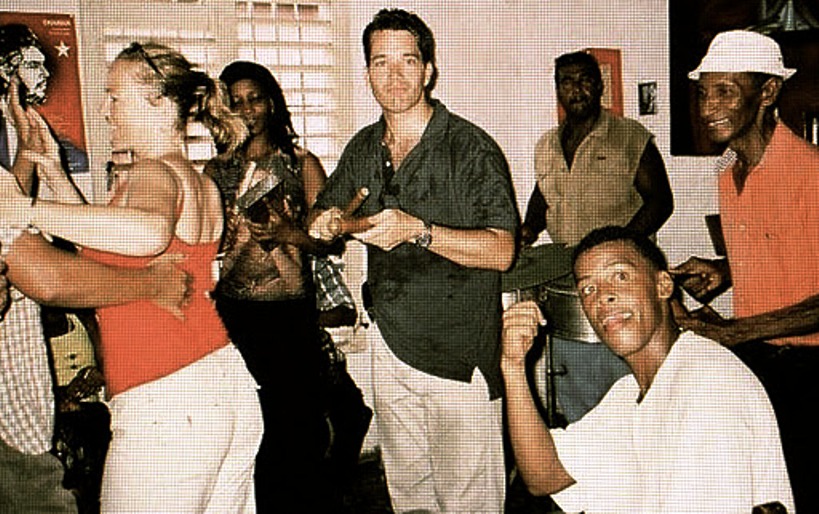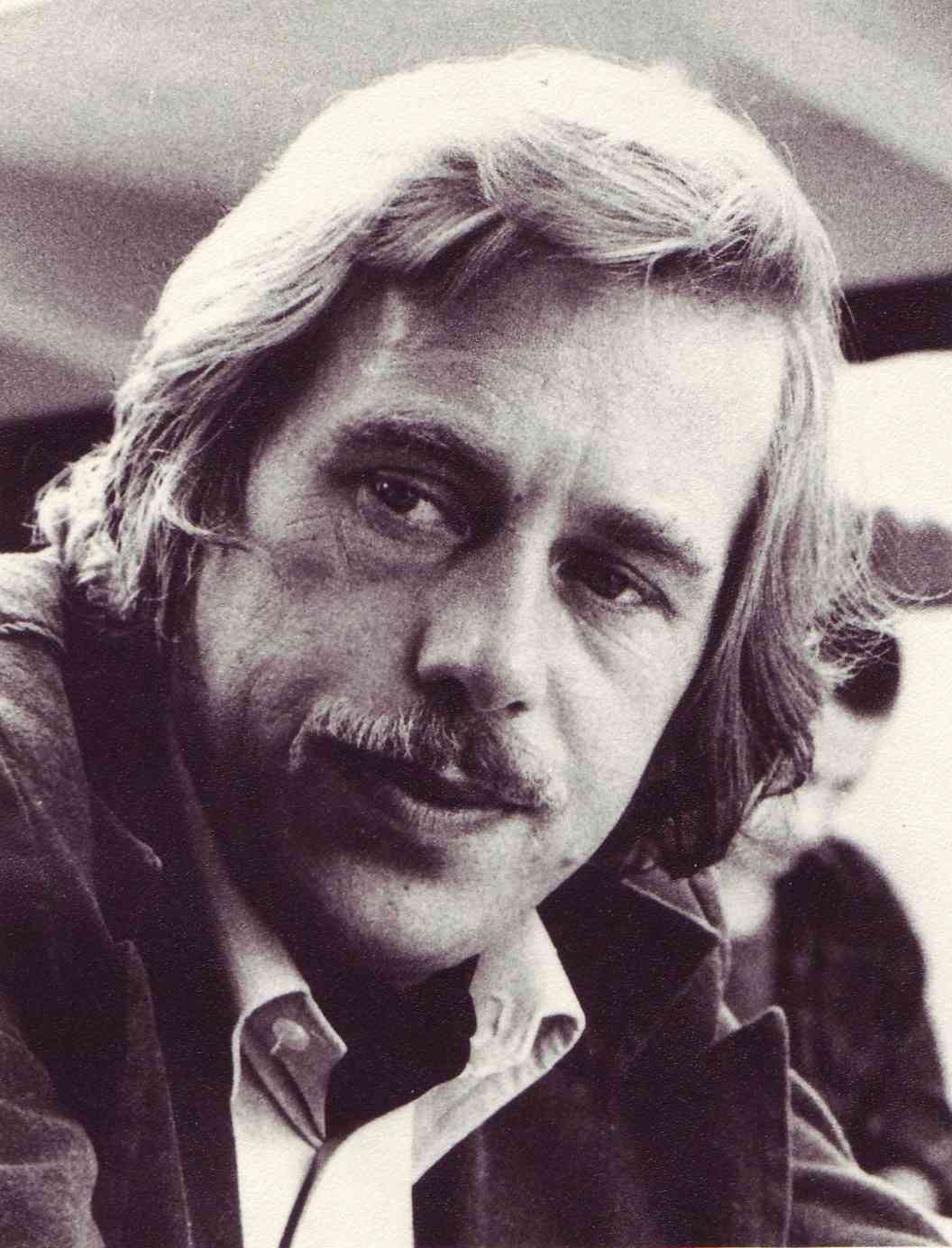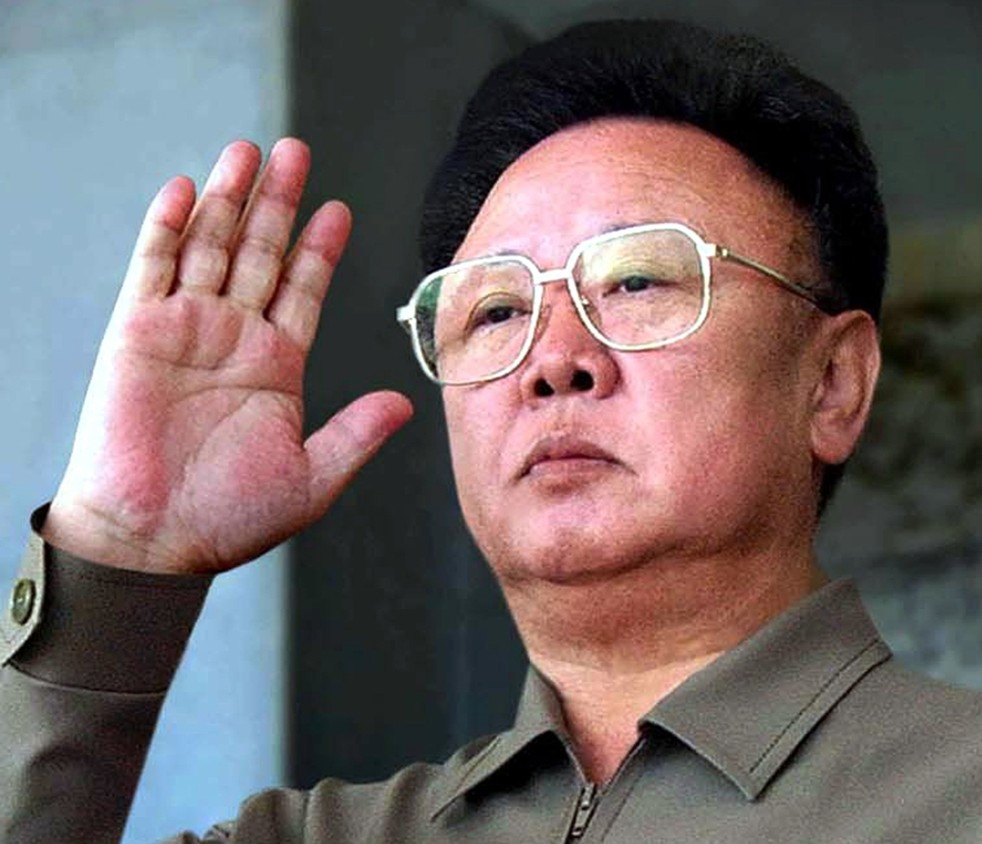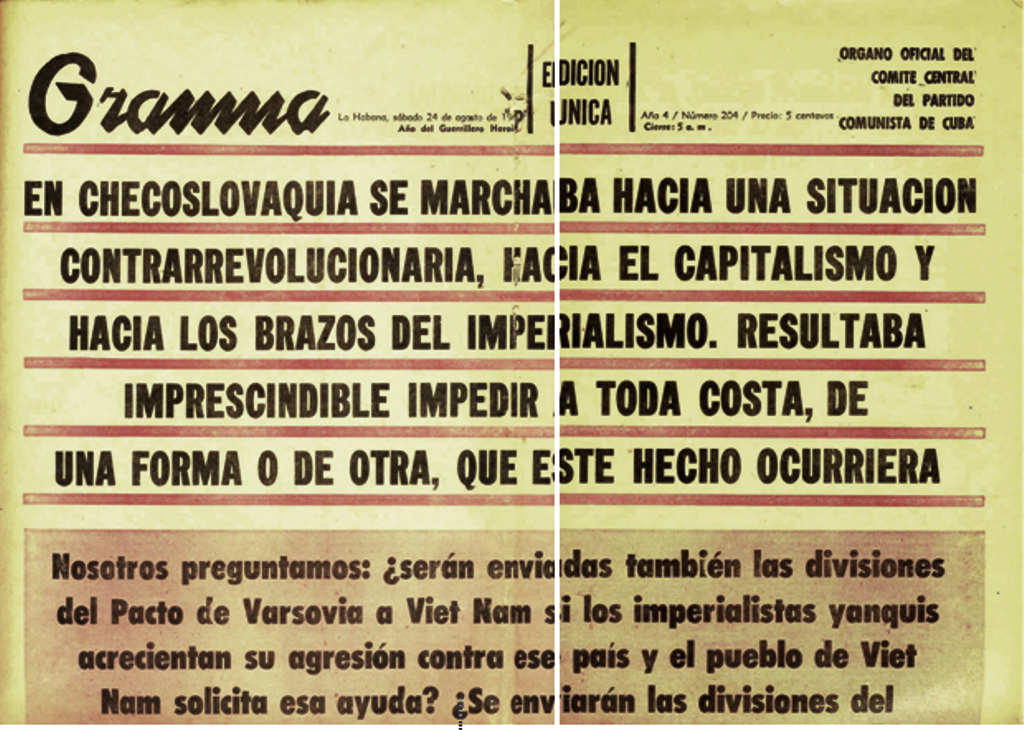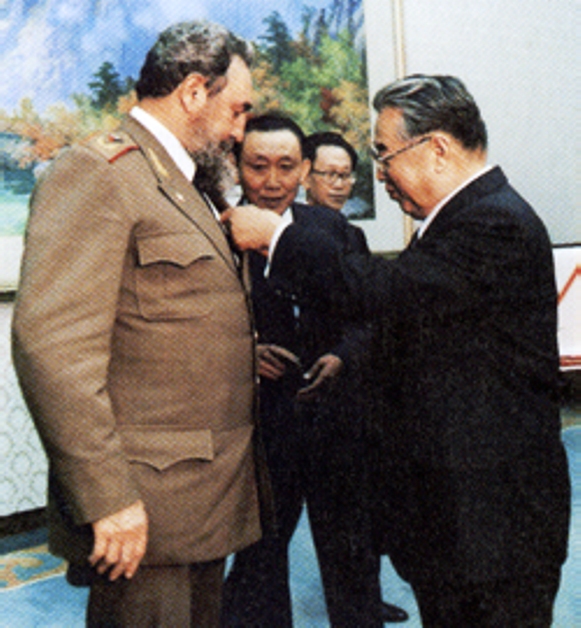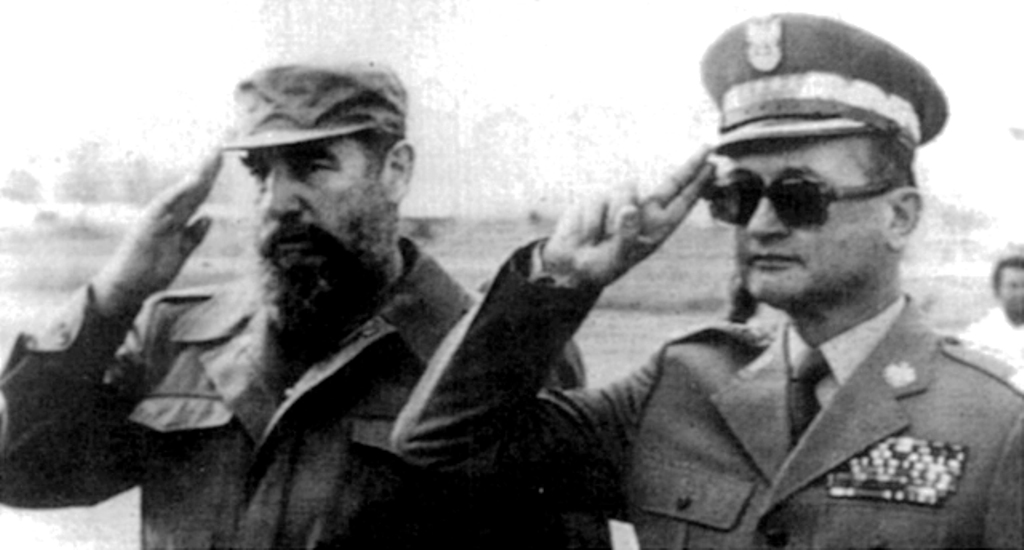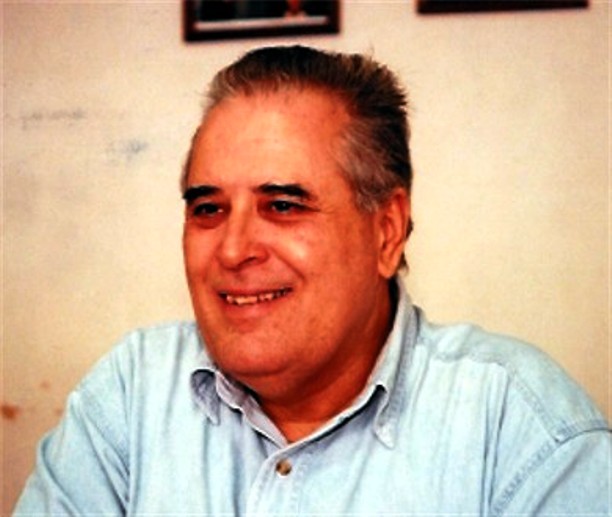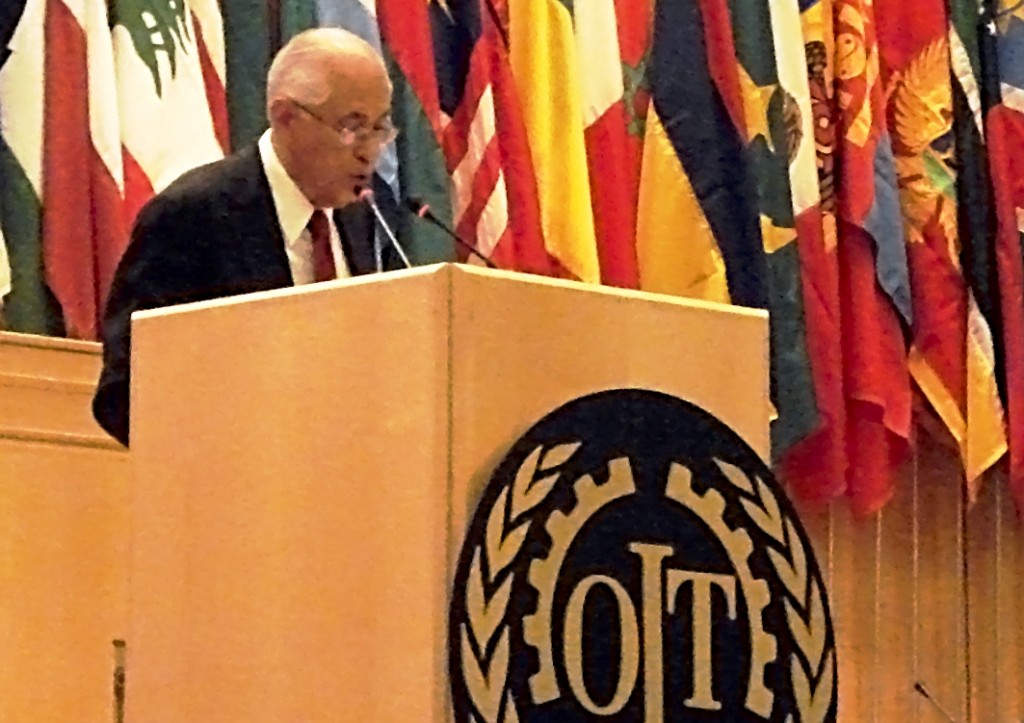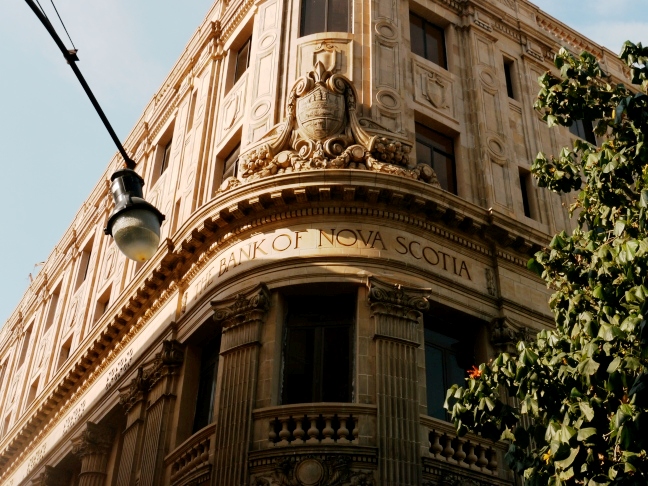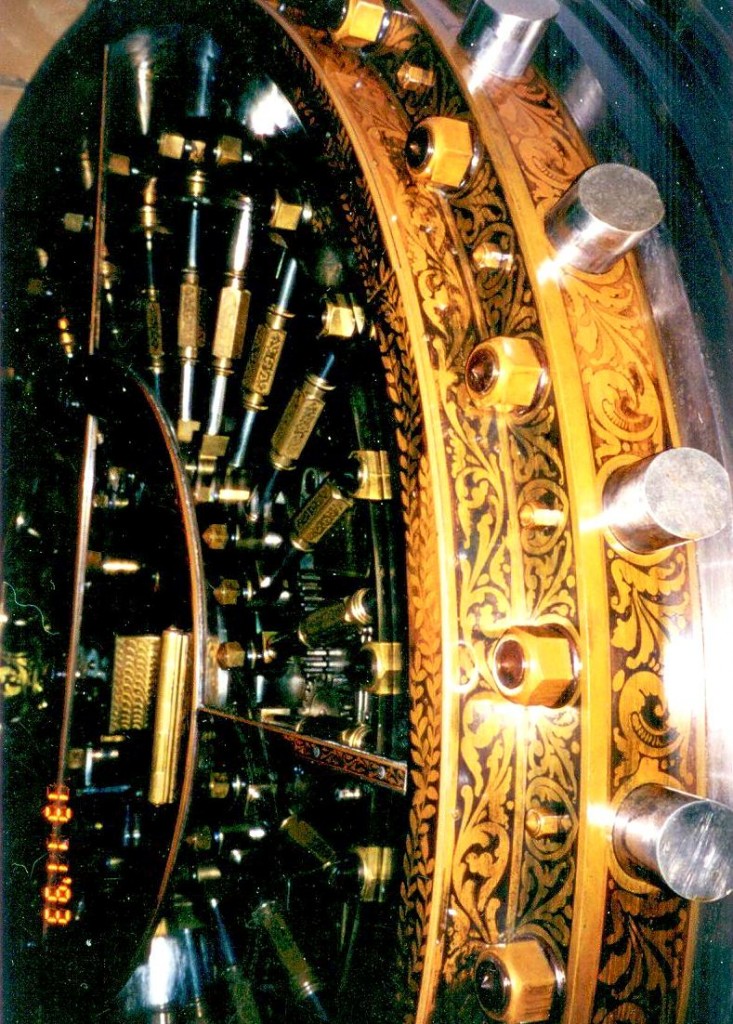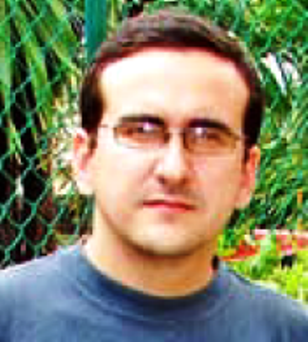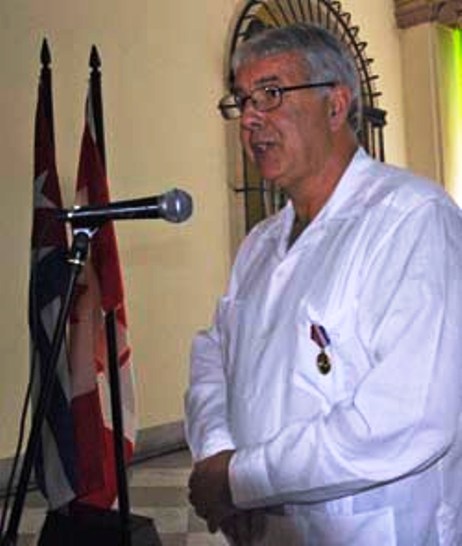-

Tags
Agriculture Art Markets Association for the Study of the Cuban Economy Baseball Black Market Book Book Review Bseball Buena Vista Social Club Business Cartography Castro Dynasty CELAC Central Planning Che Guevara Civil Liberties Civil Society Comedy Communications Communist Party of Cuba Comparative Experience Compensation issue Confiscations Constitution Cooperatives Corona Virus Corruption Covid 19 criptomoneda Cuba Cuba-Africa Relations Cuba-Brazil Relations Cuba-Canada Relations Cuba-Caribbeab Relations Cuba-China Relations Cuba-European Union Relations Cuba-Haiti Relations Cuba-Russia Relations Cuba-Soviet Relations Cuba-Spain Relations Cuba-Venezuela Relations Cuban-Americans Cuban Adjustment Act Cuban Diaspora Cuenta Cuenta-Propistas Cultural Policy Culture Currency Reform Daily Life 2012 Debt Issue Defense and Security Issues Democracy Demography Development Assistance Development Strategy Digital Library Diplomacy Dissidents Document Archive EBOLA Econmic Institutions Economic Growth Economic History Economic Illegalities Economic Institutions Economic Melt-Down Economic Model 2016 Economic Prospects Economic Recovery Economic Reform Economic Reforms Economic Self-Correction Education Eighth Party Congress Electricity Embar Embargo Emig Emigration Employment Energy Enterprise Management Entrepreneurship Environment Eusebio Leal Exchange Rate Policy Export Processing Zone Exports Expropriated Properties External Debt Fidel Fidel Castro Finance Fiscal Policy Foreign Foreign Exchange Earnings Foreign Exchange Earninigs Foreign Investmenr Foreign Investment Foreign Trade Freedom of Assembly Freedom of Expression Freedom of Movement Gender Issues Genera General Economic Analyses General Economic Performance Guantanamo Havana Health Hel Helms-Burton Bill History Housing Hugo Chavez Human Development Human Rights Humor Hurricane Hurricane IRMA Illegalities Income Distribution Industry Inequality Inflation Information Technology Infrastructure Inlation Innovation International Financial System International Relations Internet Interview Joe BIden Joint Ventures Journalism Labor Rights Labour Issues Lineamientos Literature Living Standards Luis Alberto López-Calleja Macroeconomy Manufacturing Sector Maps Marabu Mariel Market Socialism Media Medical System Microfinance Migration Miguel Diaz-Canel Military Mineral Sector MIning Missile Cisis 1962 Monetary System Music Narcotics Policy National Accounts National Assembly National Development Plan 2016-2030 New York Times Nickel Industry Nicolas Maduro Normalization North Korea - Cuba Relations OAS Summit Obam Obama Oligopoly Omar Everleny Perez Opposition Organization of American States Oscar Espinosa Chepe Paladares Panama Papers Pandemic Pensions Petroleum PHOTOGRAPHS polit Politic Political System Politics Poll Pope Francis Population Poverty Ine President President Raul Castro Private Sector Property Claims Property Market Protest Protests Public Finance Putin Race Raul Castro Real Estate Market Rectification Process Regional Development Regional Integration Regulation Relations with Latin American Religion Remittances Resources Revolutionary Offensive 1968 Rum Self Self-Employment Services Seventh Party Congress Sherritt Sherritt International Simon Joel Sixth Party Congress Small Small Enterprise Social Social Indicators Socially Responsible Enterprise Social Security Soviet Subsidization Special Period Sports State Enterprise Structural Adjustment Structural Change Succession Sugar Sector tax Taxation The Arts Tiendas Recaudadoras De Divisas Tobacco Tourism Trade Trade Strategy Transportation Trum Trump Ukraine Underg Underground Economy UNDP HDR 2010 UNDP HDR 2011 Unemployment Universities Urbanization US-Cuba Normalization US-Cuba Relations Venezuela Viet Nam Wage Levels Water Resouirces Yoani Sanchez ZIKA VirusPrimary Source Materials
Authors
- . Gioioso Richard N
- 14YMEDIO
- Ablonczy Diane
- Acosta Gonzalez Eliane
- Adams David
- Adams Susan
- Agence France-Presse
- Agencias Madrid
- Aja Díaz Antonio
- Alarcón Ricardo
- Albizu-Campos Espiñeira Juan Carlos
- Almeida J. J.
- Alvarez Aldo
- Alvarez José
- Alzugaray Carlos
- Amnesty International
- Anaya Cruz Betsy
- Anderson John Lee
- Aníbal
- Anio-Badia Rolando
- Arch
- Armeni Andrea
- Armstron
- Armstrong Fulton
- ARTnews
- ASCE
- Associated Press
- Augustin Ed
- Azel José
- Bain Mervyn J.
- Baranyi Stephen
- Barbería Lorena
- Bardach Ann Louise
- Barral Fernando
- Barrera Rodríguez Seida
- Barreto Humberto
- Batista Carlos
- Bayo Fornieles Francesc
- BBC
- Becker Hilary
- Becque Elien Blue
- Belt Juan A. B.
- Benjamin-Alvarado Jonathan
- Benzi Daniele
- Betancourt Rafael
- Betancourt Roger
- Blanco Juan Antonio
- Bobes Velia Cecilia
- Borjas George J.
- Brennan David
- Brenner Philip
- Brookings Institution
- Brown Scott
- Brundenius Claes
- Bu Jesus V.
- Buigas Daniel
- Burnett Victoria
- Bye
- Bye Vegard
- Café Fuerte
- CaféFuerte
- Cairncross John
- Campbell Morgan
- Campos Carlos Oliva
- Campos Pedro
- Caruso-Cabrera Michelle
- Casey Michael
- Castañeda Rolando H.
- Castellano Dimas
- CASTILLO SANTANA MARIO G.
- Castro Fidel
- Castro Ramphis
- Castro Raúl
- Castro Teresa Garcia
- Catá Backer Larry
- Cave Damien
- Celaya Miriam
- Centeno Ramón I.
- Center for Democracy in the Americas’ Cuba Program
- Center for Latin American Studies at American University
- Centro de Estudios sobre la Economia Cubana
- César Guanche Julio
- CÉSPEDES GARCÍA-MENOCAL MONSEÑOR CARLOS MANUEL DE.
- Chaguace daArmando
- CHAGUACEDA ARMANDO.
- Chase Michelle
- Chepe
- Chepe Oscar
- Christian Solidarity Worldwide
- CiberCuba
- Community of Democracies
- Cordoba Jose de
- Crahan Margaret E.
- Cuba Central Team
- Cuba Standard
- Cuba Study Group
- Cuban Research Institute
- D´ÁNGELO OVIDIO.
- DACAL ARIEL.
- Dade Carlo
- de Aragon Uva
- de Céspedes Monseñor Carlos Manuel
- De la Cruz Ochoa Ramón
- De la Fuente Alejandro
- de la Torre Augusto
- De Miranda Parrondo
- del Carmen Zavala María
- DFAIT Canada
- DIARIO DE CUBA
- Diaz Fernandez Ileana
- Diaz Ileana
- Diaz Moreno
- Diaz Moreno Rogelio Manuel
- Díaz Oniel
- Díaz Torres Isbel
- Díaz Vázquez Julio
- Díaz-Briquets Sergio
- Dilla Alfonso Haroldo
- Diversent Laritza
- Domínguez Jorge I
- DOMÍNGUEZ JORGE I.
- Dore Elizabeth
- Duany Jorge
- Duffy Andrew
- Echavarria Oscar A.
- Echevarría León Dayma
- Economist Intelligence Unit
- Eduardo Perera Gómez Eduardo
- EFE
- Eire Carlos
- Ellsworth Brian
- Environmental Defense Fund
- Erikson Daniel P
- Erisman Michael
- Escobar Reinaldo
- Espacio Laical
- Espino María Dolores
- Farber Samuel
- Faya Ana Julia
- Feinberg Richard E.
- Feinsilver Julie M.
- FERNÁNDEZ ESTRADA JULIO ANTONIO.
- Fernandez Tabio Luis Rene
- Field Alan M.
- Florida International University
- Font Mauricio
- FOWLER VÍCTOR.
- Frank Mark
- Franks Jeff
- Fulton
- Fusco Coco
- Gabilondo Jose
- Gabriele Alberto
- Gálvez Karina
- Gámez Torre Nora
- Gámez Torres Nora
- Garcia Alvarez Anicia
- Garcia Anicia
- Garcia Anne-Marie
- Garcia Cardiff
- Garcia Enrique
- Garrett Laurie
- Gazeta Oficial
- Globe and Mail
- Gómez Manzano Rene
- González Ivet
- González Lenier
- González Mederos Lenier
- Gonzalez Roberto M
- González Roberto Veiga
- González-Corzo Mario A.
- Gonzalez-Cueto Aleida
- Gorney Cynthia
- Granma
- Grant Tavia
- Gratius Susanne
- Grenier
- Grenier Guillermo J.
- Grenier Yvon
- Grogg Patricia
- GUANCHE ZALDÍVAR JULIO CÉSAR.
- Gutiérrez Castillo Orlando
- Hagelburg G. B.
- Hakim Peter
- Hansel Frank-Christian
- Hansing Katrin
- Hare Paul Webster
- Hargreaves Clare
- Havana Times
- Haven Paul
- Hearn Adrian H.
- Henk
- Henken Ted
- Hernández Rafael
- Hernández Sánchez Lisbán
- Hernández-Catá Ernesto
- Herrero Ricardo
- Hershberg Eric
- Hirschfeld Katherine
- Human Rights Watch
- Íñigues Luisa
- International Republican Institute
- Ize Alain
- Jiménez Guethón Reynaldo
- JIMÉNEZ MARGUERITE ROSE
- Justo Orlando
- Karina
- Kergin Michael
- Kirk Emily J.
- Kirk John
- Klepak Hal
- Koring Paul
- Kornbluh Peter
- Kraul Chris
- Kunzmann Marcel
- Lafitta Osmar
- Lai Ong
- Latell Brian
- Legler Thomas
- Leiva Miriam
- Leogrande
- LeoGrande William M.
- León-Manríquez José Luis
- Liu Weiguang
- Lo Brutto Giuseppe
- Lockhart Melissa
- Lopez-Levi Arturo
- López-Levy Arturo
- Lozada Carlos
- Luis Luis R.
- Lutjens Sheryl
- Luxner Larry
- Mack Arien
- Mao Xianglin
- Marino Mallorie E.
- MÁRQUEZ HIDALGO ORLANDO.
- Márquez Orlando
- Marrón González
- Martinez Alexandra
- Martínez Reinosa Milagros
- Martínez-Fernández Luis
- Maybarduk Gary
- Mayra Espina
- McKenna Barrie
- McKenna Peter
- McKercher Asa
- McNeil Calum
- Meacham Carl
- Mejia Jairo
- Mesa-Lago Carmelo
- Messina Bill
- Milne Seumus
- Ministerio de Justicia
- Ministerio de Salud
- Miroff Nick
- Monreal González Pedro
- Montaner Carlos Alberto
- Morales Domínguez Esteban
- Morales Emilio
- Morales Esteban
- Morales Rosendo
- Morris Emily
- Mujal-Leon Eusebio
- MULET CONCEPCION YAILENIS
- Muse Robert
- Nagy Piroska Mohácsi
- Naím Moisés
- National Geographic
- New York Times
- Nicol Heather
- Nova González Armando
- Offman Craig
- Oficina Nacional de Estadisticas y Informacion
- Omar
- OnCubaNews
- Orro Roberto
- Orsi Peter
- Oscar
- Pacheco Amaury
- Padrón Cueto Claudia
- Padura Fuentes Leonardo
- Pajon David
- Parker Emily
- Partido Comunista de Cuba
- Partlow Joshua
- Pedraza Sylvia
- Perera Gómez Eduardo
- Pérez Lorenzo
- Pérez Lorenzo L.
- Pérez Omar Everleny
- Pérez-Liñán
- Pérez-López Jorge
- Pérez-Stable Marifeli
- PESTANO ALEXIS.
- Peters Phil
- Petras James
- Piccone Ted
- Piñeiro Harnecker Camila
- Pinero Harnecker Camila
- Piñón Jorge R.
- Politics
- Pons Perez Saira
- Posner Michael
- Powell Naomi
- Pravda
- President Obama
- Press larry
- Prevost Gary
- PRIETO SAMSÓNOV DMITRI.
- puj
- Pujol Joaquín P.
- Pumar
- Pumar Enrique S.
- Quartz
- Radio Netherlands Worldwide
- Rathbone Jphn Paul
- Ravsberg Fernando
- Reporters Without Borders
- Reuters
- Ricardo Ramírez Jorge
- Ritter
- Ritter Arch
- Robinson Circles
- Rodriguez Andrea
- Rodríguez José Luis
- Rodriguez Rodriguez Raul
- Rodriquez Jose Luis
- Rogelio Manuel
- Rohrlich Justin
- Rojas Janet
- Rojas Rafael
- Romero Antonio F.
- Romero Carlos A.
- Romero Vidal
- Romeu Jorge Luis
- Romeu Rafael
- Ross Oakland
- Sagebien Julia
- Saladrigas Carlos
- Salazar Maria Elvira
- Sánchez Jorge Mario
- Sánchez Juan Tomas
- Sánchez Yoani
- Sanders Ronald
- Sanguinetty Jorge A.
- Santiago Fabiola
- Scarpacci Joseph L.
- Scheye Rlaine
- Seiglie Carlos
- Sher Julian
- Smith Anthony
- Sofía
- Spadoni Paolo
- Srone Richard
- Stevens Sarah
- Strauss Michael J.
- Stusser Rodolfo J.
- Sullivan Mark P.
- Svejyar Jan
- Tamayo Juan
- The Economist
- Theiman Louis
- Thiemann Louis
- Toro Francisco
- Toronto Star
- Torres Perez Ricardo
- Torres Ricardo
- Tønnessen-Krokan Borghild
- Travieso-Dias Matias F.
- Trejos Alberto
- Triana Cordovi Juan
- Triana Juan
- Triff
- Triff Soren
- Trotta Daniel
- Tummino Alana
- UN ECLAC
- United States Department of Agriculture
- US Department of Agriculture
- US Department of the Treasury
- US International Trade Commission
- US Treasury
- USÓN VÍCTOR
- Valdés Dagoberto
- Vazquez Jose
- Vega Veronica
- Veiga González Roberto
- Vera Rojas
- Verma Sonia
- Vidal Alejandro Pavel
- Vidal José Ramón
- Vignoli Gabriel
- Villalobos Joaquin
- Vuotto Mirta
- Warren Cristina
- Weinreb Amelia
- Weissenstein Michael
- Wells Cheney
- Werlau Maria C.
- Werner
- Werner Johannes
- West-Durán Alan
- Whitefield Mimi
- Whitfield Esther
- WOLA
- Wolfe Andy
- Woolley Frances
- Wylie lana
- Yaffe Helen
- YAKABUSKI KONRAD
- Yoani
- Zamora Antonio R.
Websites and Blogs from Cuba
- OnCubaNews
- Diario de Cuba (DDC)
- Las Damas de Blanco
- Lunes de Post-Revolucion
- 14 y medio
- Espacio Laical: CONSEJO ARQUIDIOCESANO DE LAICOS DE LA HABANA
- Granma, Órgano oficial del Comité Central del Partido Comunista de Cuba.
- Pedro Monreal, el estado como tal
- Havana Times
- La Joven Cuba
- Desde aquí / Reinaldo Escobar
- Translating Cuba, Translations of website postings from Cuba, mainly from 14 y Medio
- La Joven Cuba
Websites and Blogs on Cuba
Web Sites and Blogs on the Cuban Economy
- Pedro Monreal, el estado como tal
- ASCE Annual Proceedings
- Republica de Cuba: Oficina Nacional de Estadisticas
- Revista Temas de Economía Mundial. 2011 – 2020.
- Centro de Estudios de la Economía Cubana (CEEC)
- 14 y medio
- Association for the Study of the Cuban Economy (ASCE)
- Revista de la Facultad de Economía de la Universidad de La Habana.
Economics Websites: General
Featured
Recent Comments
- Erika Hagelberg on G. B. Hagelberg, Analyst and Friend of Cuba. His Last Work: ¨Cuban Agriculture: Limping Reforms, Lame Results”
- botas de mulher on ‘NOW IT WILL ONLY GET WORSE’: CUBA GRAPPLES WITH IMPACT OF UKRAINE WAR
- Roberto Bonachea Entrialgo on Esteban Morales Domínguez, “FRENTE A LOS RETOS DEL COLOR COMO PARTE DEL DEBATE POR EL SOCIALISMO” and Commentary by Juan Tamayo
- Merna Gill on THE CUBAN EMBARGO HAS FAILED
- Vahe Demirjian on THE UNITED STATES AND CUBA: A NEW POLICY OF ENGAGEMENT
- Arch Ritter on THE 2020 FIU CUBA POLL: BEHIND THE PARTISAN NOISE, A MAJORITY OF CUBAN-AMERICANS SUPPORT ENGAGEMENT POLICY.
- Vahe David Demirjian on THE 2020 FIU CUBA POLL: BEHIND THE PARTISAN NOISE, A MAJORITY OF CUBAN-AMERICANS SUPPORT ENGAGEMENT POLICY.
- Diane Duffy on CANADIAN RETIREE TURNING OUT HANDMADE BASEBALL BATS FOR CUBA
- Alexis Aguilera-Borges on Jump-Starting the Introduction of Conventional Western Economics in Cuba
- Lechner Rodríguez Aguilar on Recuperation and Development of the Bahi ́a de la Habana
Recent Vistors
Today's Visitors



